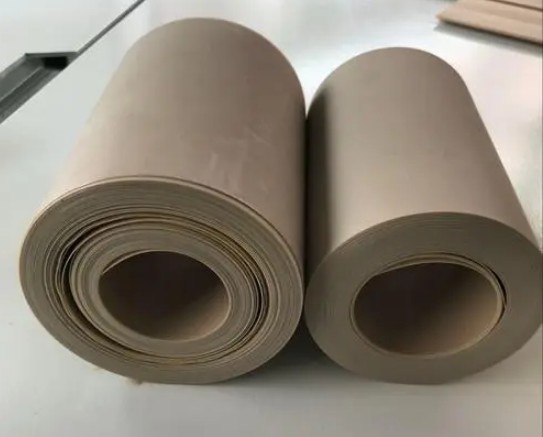BETTER TOUCH BETTER BUSINESS
Contact Sales at FURUI.
PEEK Film (Polyether Ether Ketone Film) is a high-performance polymer renowned for its excellent thermal and mechanical properties. It is widely used across various industries, including aerospace, automotive, and medical applications. Understanding the manufacturing processes behind PEEK Film is crucial for buyers, as these processes directly impact the quality and performance of the final product. This article will delve into the key manufacturing steps, ensuring that potential buyers can make informed decisions when seeking high-quality PEEK Film. PEEK Film is a versatile engineering plastic that exhibits exceptional resistance to heat, chemicals, and wear. Its unique properties make it an ideal choice for applications requiring durability and reliability. Industries such as aerospace rely on PEEK Film for lightweight yet strong components, while the medical sector values its biocompatibility and sterilization capabilities. The first step in the manufacturing of high-quality PEEK Film involves the selection of raw materials. The primary precursor for PEEK is a combination of hydroquinone and 4,4'-difluorobenzophenone. The quality of these materials significantly influences the final film's properties, making it essential for PEEK Film manufacturers to source high-grade precursors. Using superior raw materials ensures that the resulting PEEK Film exhibits enhanced mechanical strength, thermal stability, and resistance to various environmental factors. The polymerization process is critical in the production of PEEK Film. During this step, the selected precursors undergo a chemical reaction to form the polymer chains that make up PEEK. The polymerization conditions, including temperature and pressure, must be carefully controlled to ensure the desired molecular weight and consistency of the polymer. A higher molecular weight typically results in improved mechanical properties, making the understanding of this process vital for those looking to purchase PEEK Film. Once polymerization is complete, the next step is extrusion. This process involves melting the PEEK polymer and forcing it through a die to create a continuous sheet or film. Temperature control during extrusion is crucial, as it affects the material flow and the final film's characteristics. Extruded PEEK Film can be produced in various thicknesses, allowing manufacturers to cater to specific customer needs. For buyers seeking wholesale PEEK Film, understanding the extrusion process can help assess the quality of the material they are purchasing. After extrusion, the next step is film formation. This can be achieved through methods such as casting or stretching the extruded PEEK. The cooling rate and stretch ratio applied during this phase play a significant role in determining the film's final properties. A well-controlled cooling process enhances the crystallinity of the PEEK Film, which in turn improves its mechanical strength and thermal resistance. Quality control is paramount throughout the manufacturing process to ensure that the final PEEK Film meets industry standards. Common testing methods include assessing tensile strength, thermal stability, and chemical resistance. Manufacturers often implement rigorous testing protocols to identify any defects or inconsistencies in the film, ensuring that it performs optimally in its intended applications. For buyers, understanding these quality control measures can provide confidence in the reliability and performance of the PEEK Film they are considering for purchase. One of the advantages of PEEK Film is its ability to be customized according to specific application requirements. Buyers can request variations in thickness, color, and additives to enhance certain properties, such as UV resistance or fire retardancy. Customization allows PEEK Film manufacturers to provide tailored solutions that meet the unique needs of different industries. When purchasing PEEK Film, it is essential for buyers to communicate their specific requirements to ensure they receive a product that aligns with their application goals. When looking to purchase PEEK Film, several key factors should be considered: Certifications: Ensure that the manufacturer complies with relevant industry standards and certifications. Supplier Reputation: Research the manufacturer's reputation in the market to guarantee quality and reliability. Manufacturing Standards: Inquire about the manufacturing processes and quality control measures in place to assess the film's suitability for your application. By considering these factors, buyers can make informed choices when selecting a PEEK Film supplier. Understanding the manufacturing processes behind high-quality PEEK Film is essential for making informed purchasing decisions. By delving into the intricacies of polymerization, extrusion, and quality control, buyers can ensure they choose a product that meets their performance needs. For those seeking PEEK Film, collaborating with reputable manufacturers and understanding their production methods is key to achieving optimal results.Introduction

1. Understanding PEEK Film
2. Raw Materials and Precursor Selection
3. Manufacturing Processes
3.1. Polymerization
3.2. Extrusion
4. Film Formation
5. Quality Control Measures
6. Customization and Variants
7. Factors to Consider When Purchasing PEEK Film
Conclusion
Copyright © 2025 Guangzhou Furui New Material Technology Co., Ltd.| All Rights Reserved